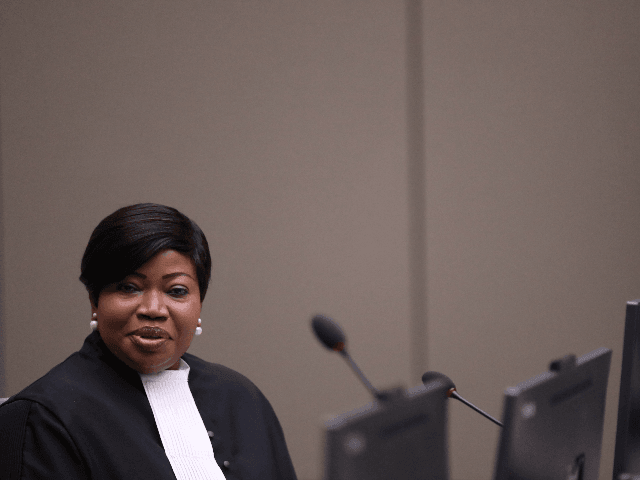The United States imposed sanctions on senior officials at International Criminal Court (ICC) in The Hague on Wednesday, including chief prosecutor Fatou Bensouda, on charges of “illegitimate attempts to subject Americans to its jurisdiction.”
In a statement, Secretary of State Mike Pompeo described the ICC as a “thoroughly broken and corrupted institution” in reference to the court investigation of alleged war crimes committed by U.S. service personnel in Afghanistan.
“Today, the United States is taking action to protect Americans from the unjust and illegitimate investigation by the International Criminal Court (ICC), which threatens our sovereignty and poses a danger to the United States and our allies,” remarked Pompeo.
He continued:
The United States is a strong advocate for justice around the world but is not a party to the Rome Statute that created the ICC, nor have we ever accepted its jurisdiction over our personnel. The ICC’s recklessness has forced us to this point, and the ICC cannot be allowed to follow through with its politically-driven targeting of U.S. personnel. The sanctions and visa restrictions announced today apply to individuals who have directly engaged in ICC efforts to investigate U.S. personnel without the consent of the United States or have materially supported individuals who are designated for such actions.
Those sanctioned include Bensouda, for her involvement in the investigation of U.S. personnel, and the Head of the Jurisdiction, Complementarity, and Cooperation Division Phakiso Mochochoko, for providing material assistance.
Under the sanctions, both Bensouda and Mochochoko will be added to the U.S. Department of the Treasury’s Office of Foreign Assets Control’s List of Specially Designated Nationals and Blocked Persons. Those who continue to support the investigation could also be in the future.
Pompeo added that the move “reflects the American commitment to real justice and accountability.”
“From the Nuremberg and Tokyo trials after World War II to the more recent Yugoslavia, Lebanon, and Rwanda tribunals, the United States has consistently sought to uphold good and punish evil under international law,” his statement read. “We will continue to do so. Americans are proud to stand for truth and justice. We have no intention of letting the ICC’s illegitimate activities become a barrier to that pursuit.”
Following the announcement, the ICC said in a statement that the decision had been made “with the declared aim of influencing the actions of ICC officials” in their investigations.
“An attack on the ICC also represents an attack against the interests of victims of atrocity crimes, for many of whom the Court represents the last hope for justice,” the statement read.
Reacting to the news, a spokesperson for U.N. Secretary-General Antonio Guterres pronounced his concern and pledged to “closely follow developments on this matter [and] analyzing any possible implications that this development may have with respect to the implementation of the Agreement.”
Created via a UN treaty in 2002, the ICC was intended to serve as a court for genocide, crimes against humanity, and war crimes when national authorities were unable or refused to prosecute. However, four of the world’s great superpowers – the U.S., China, Russia, and India – all refused to join over perceived biases against their citizens and do not recognize its authority.
In June, President Donald Trump issued an executive order allowing the U.S. to block the assets of ICC employees and also prevent them from entering the country. The ICC described the decision as an “unacceptable attempt to interfere with the rule of law.”
Follow Ben Kew on Parler, Facebook, or Twitter. You can email him at bkew@breitbart.com.

COMMENTS
Please let us know if you're having issues with commenting.